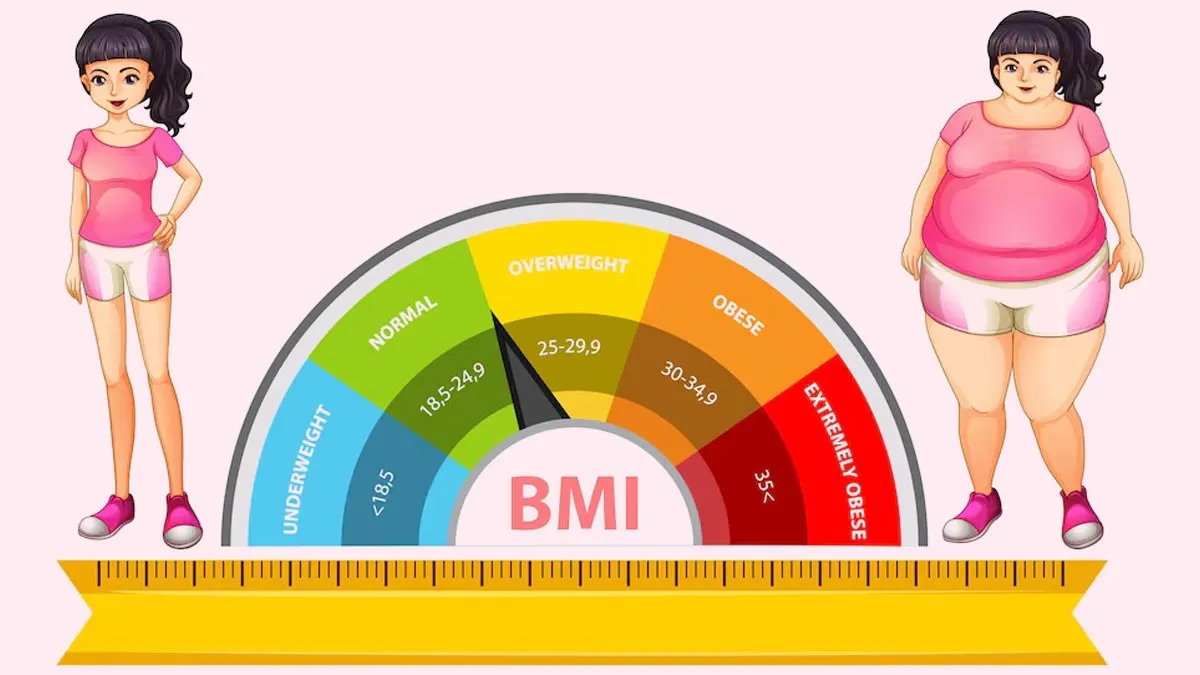
Inflammation is a natural process where the body's immune system responds to harmful stimuli, such as pathogens, damaged cells, or irritants, to protect and heal itself. While acute inflammation is the body’s immediate response to injury or infection, chronic inflammation is a prolonged state that can lead to health complications, including unwanted weight gain.
Table of Content:-
Vidya Balan recently shared her struggle with weight loss, explaining that despite her efforts with dieting and exercising, the results were often temporary. “Sometimes I’d manage to lose weight, but it would always return. Earlier this year, I consulted a nutrition team in Chennai, and they told me the issue wasn’t fat, it was inflammation. They put me on an anti-inflammatory diet, removing foods that didn’t suit my body, and the weight just started to drop naturally.”
To understand inflammation and how it causes weight gain, OnlyMyHealth interacted with Dr Anandmoy Dutta, MBBS, Founder and Consultant, AMD Clinic and Healthcare, South Kolkata and Dr Prachi Mhaskar, Nutrition Consultant – Ayurveda, Mumbai.
Understanding Chronic Inflammation
Dr Dutta explains, "Inflammation is a complex biological response of the body’s tissues to harmful stimuli. It is a defence mechanism designed to protect and heal the body." He further highlights that chronic inflammation occurs when this immune response persists over a long period, leading to tissue damage and, potentially, disease.
In simpler terms, chronic inflammation is like a slow-burning fire within the body, continuously trying to protect itself but ending up causing harm to healthy tissues. Unlike acute inflammation, which is short-lived and necessary for healing, chronic inflammation is more damaging and has been linked to a range of health issues, including weight gain.
How Chronic Inflammation Contributes to Weight Gain

Chronic inflammation can influence weight gain in several ways, affecting metabolism, insulin resistance, and appetite regulation.
Metabolic Changes: Chronic inflammation can disrupt the body’s metabolism, making it more challenging to burn calories efficiently. Dr Prachi Mhaskar explains, "Low levels of physical activity, poor dietary habits, and chronic stress all contribute to inflammation." When the body experiences chronic inflammation, it may start conserving energy, resulting in fat storage instead of burning it off.
Insulin Resistance: Persistent inflammation can lead to insulin resistance, a condition where cells become less responsive to insulin. Insulin is a hormone responsible for regulating blood sugar levels. When insulin isn’t working effectively, the body stores more glucose as fat, particularly around the abdomen. Dr Mhaskar adds that obesity, especially belly fat, is often a significant contributor to chronic inflammation, creating a cycle where inflammation and insulin resistance fuel each other.
Hormonal Imbalance: Chronic inflammation can also disrupt hormones related to hunger and satiety, such as leptin and ghrelin. Inflammation can lead to leptin resistance, where the brain doesn't receive signals to stop eating, resulting in overeating and, eventually, weight gain.
Impact on Mental Health: Chronic inflammation has also been linked to mental health issues, such as depression and anxiety, which can further lead to unhealthy eating behaviours as a coping mechanism, ultimately contributing to weight gain. As Dr Dutta points out, "Chronic conditions, including autoimmune diseases and cardiovascular diseases, are often associated with long-standing inflammation," showing the far-reaching impact of this condition on physical and mental health.
Also read: Vidya Balan Opens Up About Dramatic Weight Loss And Her Game-Changing New Diet
Common Causes of Chronic Inflammation

Both Dr Dutta and Dr Mhaskar agree that certain lifestyle factors significantly contribute to chronic inflammation:
Poor Diet: Diets high in trans fats, processed foods, and sugar can trigger inflammation. Dr Mhaskar recommends avoiding fried foods, pastries, and highly processed items and emphasises incorporating antioxidant-rich foods, such as blueberries, apples, cabbage, and broccoli, to help combat inflammation.
Lack of Physical Activity: Sedentary behaviour can increase inflammation. Regular exercise is essential for reducing inflammation and maintaining a healthy weight.
Stress and Lack of Sleep: Chronic stress and disturbed sleep patterns are known to exacerbate inflammation. According to Dr Mhaskar, meditation and yoga are effective practices to reduce stress and, in turn, help reduce inflammation.
Also read: Gut Inflammation: Treating It With Turmeric, Ginger, And Fennel Seeds
Tackling Chronic Inflammation to Prevent Weight Gain

The good news is that there are several ways to manage chronic inflammation, and, as a result, control weight gain.
Adopting an Anti-Inflammatory Diet: Certain foods have natural anti-inflammatory properties. "Mung beans, turmeric, ginger, and garlic are some Ayurvedic staples known for their anti-inflammatory effects," shares Dr Mhaskar. Eating whole foods rich in fibre, antioxidants, and healthy fats—like leafy greens, nuts, seeds, and fatty fish—can help combat inflammation.
Regular Physical Activity: Moderate exercise can reduce inflammation and improve metabolic health. Dr Dutta recommends a balanced exercise routine that combines cardio and strength training to aid weight management and reduce inflammation.
Stress Management Techniques: Chronic stress is a significant contributor to inflammation. Practices like deep breathing, meditation, and mindfulness can help mitigate stress and, by extension, inflammation.
Avoiding Inflammatory Substances: Limiting alcohol and quitting smoking are essential steps for managing inflammation. According to Dr Mhaskar, "Smoking and alcohol consumption increase inflammatory markers in the body, worsening chronic inflammation and weight gain."
Improving Sleep Quality: Quality sleep is essential for reducing inflammation. Poor sleep can disrupt hormone levels that regulate hunger, leading to overeating and weight gain. Prioritising good sleep hygiene can aid in controlling inflammation and supporting weight loss.
Conclusion
Chronic inflammation is a silent contributor to weight gain and other health issues. While it’s a complex process rooted in our immune response, lifestyle changes such as eating an anti-inflammatory diet, engaging in regular physical activity, managing stress, and avoiding inflammatory foods and substances can make a significant difference.
Dr Dutta and Dr Mhaskar emphasised the importance of taking proactive measures to manage inflammation, not just for weight control but for overall health. If you experience persistent or unexplained symptoms of inflammation, it’s essential to consult with a healthcare provider to address potential underlying issues.
Also watch this video
How we keep this article up to date:
We work with experts and keep a close eye on the latest in health and wellness. Whenever there is a new research or helpful information, we update our articles with accurate and useful advice.
Current Version